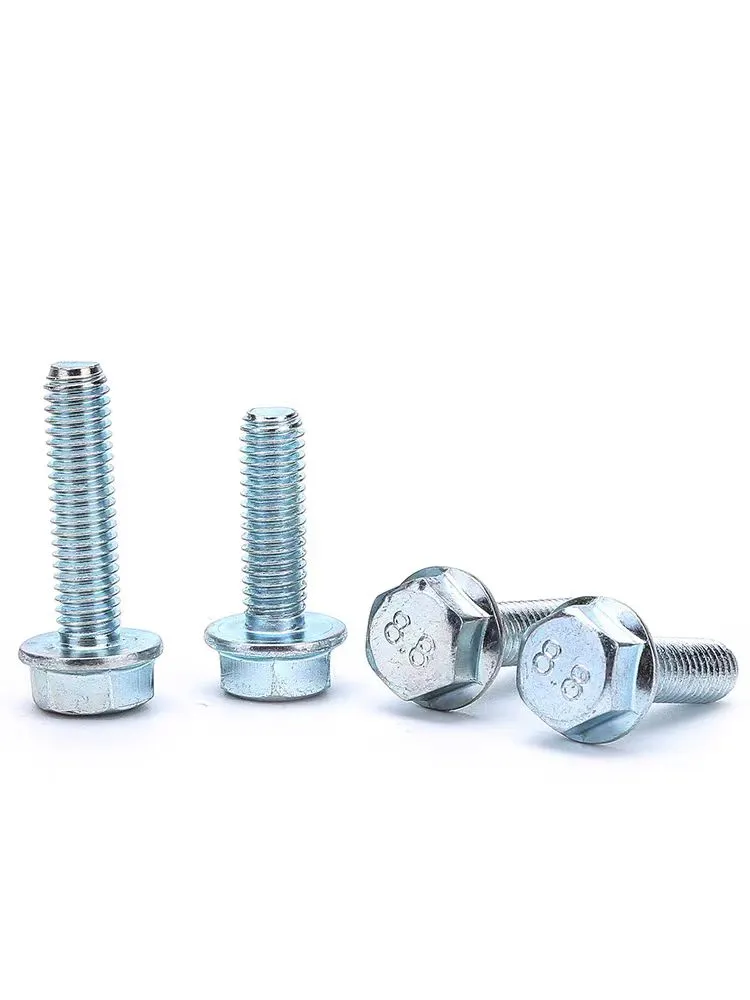

self tapping tin screws
Th12 . 16, 2024 16:57 Back to list
self tapping tin screws
The Versatile World of Self-Tapping Tin Screws
In the realm of construction and DIY projects, fasteners play a crucial role in ensuring the integrity and longevity of structures. Among the myriad fasteners available, self-tapping tin screws stand out due to their unique design and functionality. This article aims to delve into the features, advantages, and applications of self-tapping tin screws, highlighting why they are a preferred choice in many settings.
What are Self-Tapping Tin Screws?
Self-tapping screws are engineered to create their own threads as they are driven into a material. This innovative design eliminates the need for a pre-drilled hole, allowing for quicker and more efficient installation. When we refer to tin screws, we typically mean screws made for use in softer materials like tin, sheet metal, or thin metal sheeting.
Self-tapping tin screws are often made from carbon steel or stainless steel, offering different levels of corrosion resistance. The heads of these screws can come in various styles such as pan, flat, or hex, each providing specific advantages depending on the application.
Advantages of Self-Tapping Tin Screws
1. Time Efficiency One of the primary benefits of self-tapping screws is their ability to save time during installation. Without the necessity for pre-drilled holes, users can quickly fasten materials without compromising on quality.
2. Cost-Effectiveness While the initial price of self-tapping screws may appear higher than traditional screws, the time saved on labor and the reduced risk of damage can lead to overall cost savings in projects.
3. Versatility These screws are incredibly versatile and can be used across various materials, including metals, plastics, and even wood in certain scenarios. Their adaptability makes them suitable for a wide range of applications, from automotive to construction and appliances.
self tapping tin screws

4. Strong Hold The design of self-tapping screws allows them to form tight bonds with the material, minimizing the chances of loosening over time. This is particularly important in environments exposed to vibrations, such as machinery or vehicles.
5. Ease of Use Self-tapping screws can be driven into materials with basic hand tools or power tools, making them accessible to both professionals and DIY enthusiasts. This simplicity encourages more people to engage in home improvement projects.
Applications of Self-Tapping Tin Screws
Self-tapping tin screws are commonly used in both industrial and residential applications. In construction, they are often employed to secure metal roofing, siding, and insulation. The automotive industry utilizes these screws to fasten body panels, ensuring that components remain securely attached even under stress.
In HVAC systems, self-tapping screws are used to install ducts and vents, providing a sturdy and reliable connection. Additionally, they are frequently used in the assembly of appliances, ensuring that parts remain united for the product's lifespan.
DIY enthusiasts appreciate self-tapping screws for small projects, such as building metal shelving, crafting outdoor furniture, or even performing repairs around the house. The ease of use and time-saving capabilities make them a go-to choice for many.
Conclusion
In conclusion, self-tapping tin screws represent an ideal solution for a variety of fastening needs. Their unique properties offer significant advantages in terms of efficiency, cost, and adaptability. Whether in industrial applications or home improvement projects, they provide a reliable and strong hold, making them indispensable tools in the modern toolkit. As the demand for quick and effective fastening solutions continues to grow, self-tapping tin screws are poised to remain a staple in construction and DIY endeavors for years to come. Embracing the benefits of these innovative fasteners can lead to enhanced project outcomes and greater satisfaction in both professional and personal projects.
Latest news
-
Hot Dip Galvanized Bolts-About LongZe|High Strength, Corrosion Resistance
NewsJul.30,2025
-
High-Strength Hot Dip Galvanized Bolts - Hebei Longze | Corrosion Resistance, Customization
NewsJul.30,2025
-
Hot Dip Galvanized Bolts-Hebei Longze|Corrosion Resistance&High Strength
NewsJul.30,2025
-
High-Strength Hot-Dip Galvanized Bolts-Hebei Longze|Corrosion Resistance&High Strength
NewsJul.30,2025
-
Hot Dip Galvanized Bolts-Hebei Longze|Corrosion Resistance&High Strength
NewsJul.30,2025
-
Hot Dip Galvanized Bolts - Hebei Longze | Corrosion Resistance, High Strength
NewsJul.30,2025

